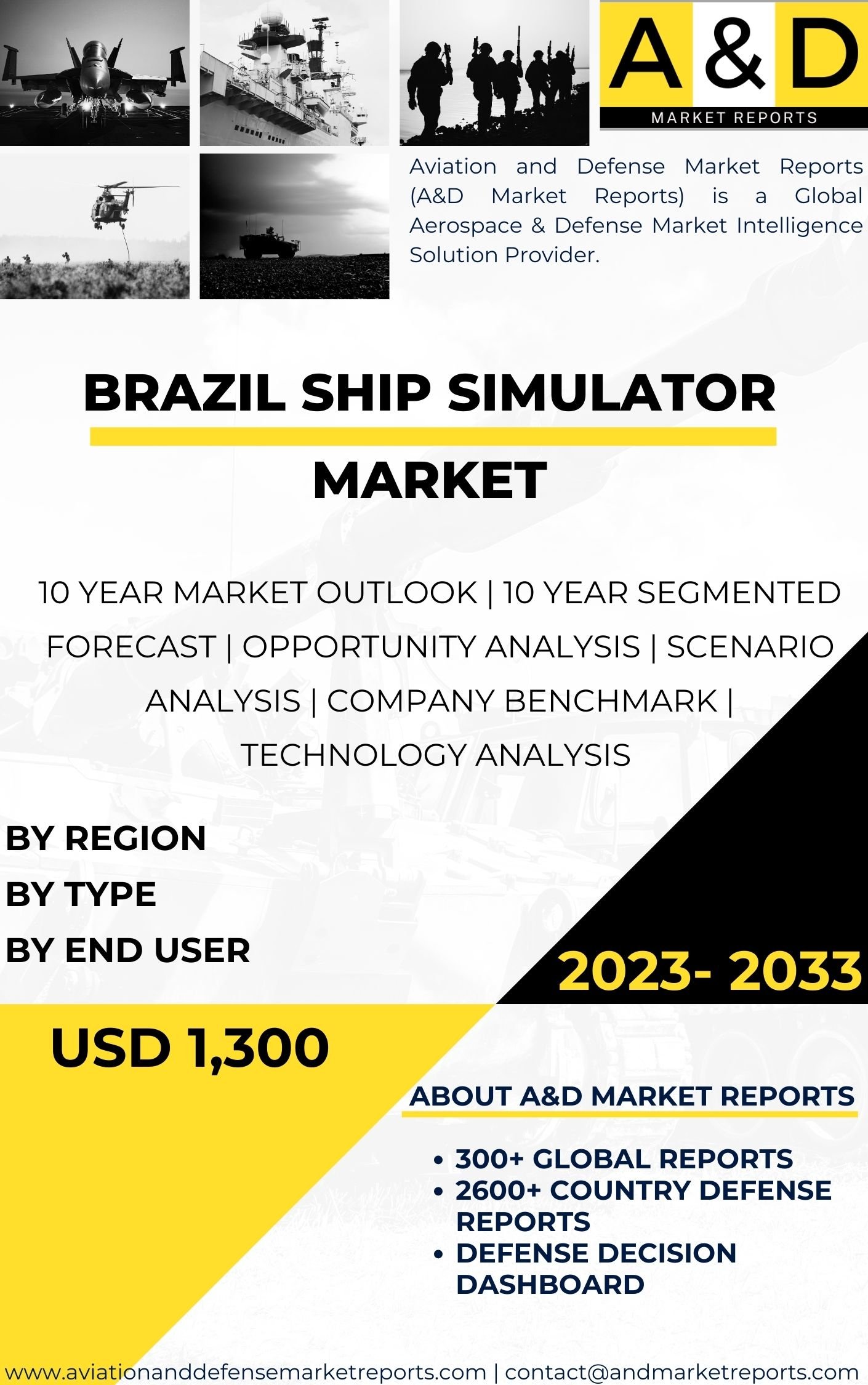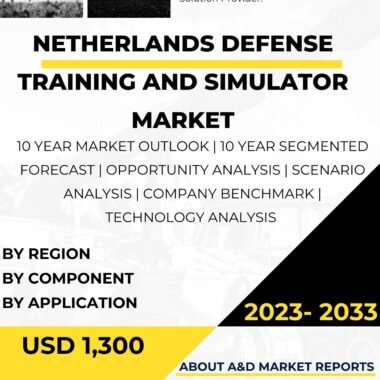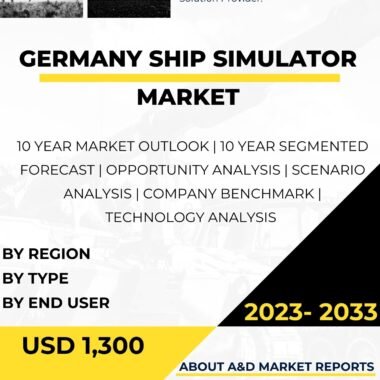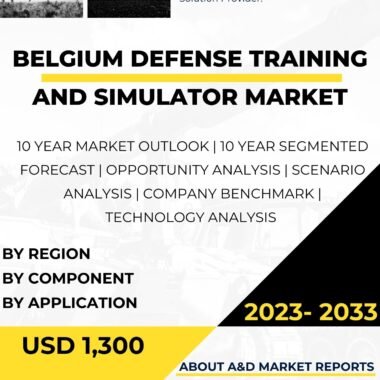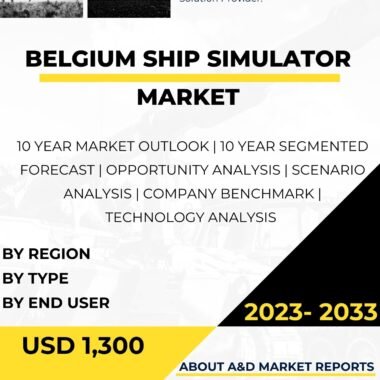Description
The Brazil Ship Simulator Market holds significant importance for the country’s maritime industry, naval training, and safety standards, as it seeks to enhance its maritime education and training programs and ensure the competency of seafarers operating in its vast maritime territories. Ship simulators are advanced training systems that replicate real-world maritime scenarios, allowing trainees to practice navigation, ship handling, and emergency procedures in a controlled and safe environment. As Brazil’s maritime sector continues to grow and evolve, the market for ship simulators has gained prominence. This article provides a comprehensive analysis of the Brazil Ship Simulator Market, covering its current state, key drivers, challenges, applications, technological advancements, and growth prospects.
The Brazil Ship Simulator Market has witnessed steady growth due to the country’s commitment to maritime safety, education, and professional development. With a vast coastline and extensive maritime territories, Brazil’s maritime industry is vital to its economic growth and international trade. Ship simulators play a crucial role in training seafarers, ensuring their proficiency, and enhancing their competency to navigate complex and challenging maritime environments.
One of the key drivers behind the market’s growth is the need to meet international standards for maritime training and certification. The International Maritime Organization (IMO) mandates that seafarers undergo comprehensive training and obtain relevant certifications to operate vessels safely and efficiently. Ship simulators provide a realistic and immersive training experience, enabling seafarers to practice various navigational scenarios, emergency procedures, and ship handling techniques required for their professional growth and compliance with international regulations.
Moreover, the Brazil Ship Simulator Market is driven by the country’s ambition to enhance its maritime education and training infrastructure. By investing in advanced ship simulators, Brazil aims to provide its maritime professionals with access to state-of-the-art training facilities and technology, improving the overall quality of maritime education and training.
The market’s growth is also influenced by the expanding role of ship simulators in supporting naval training and maritime research. Ship simulators are utilized by the Brazilian Navy to train its officers and sailors in ship handling, combat operations, and mission planning. These simulators enable the Navy to enhance its operational capabilities and readiness for various maritime scenarios.
The Brazil Ship Simulator Market finds diverse applications across various maritime sectors, each contributing to the overall safety, efficiency, and professional development of the country’s maritime workforce. In commercial shipping, ship simulators are vital for training merchant mariners, including deck officers, engineers, and navigational crews. These simulators provide a safe and cost-effective means for trainees to practice navigation, collision avoidance, and emergency response procedures, ensuring the competency of the crew and minimizing the risk of maritime accidents.
Additionally, in maritime education and training institutions, ship simulators play a crucial role in shaping the next generation of maritime professionals. Training academies and maritime schools use simulators to teach essential skills, foster teamwork, and provide hands-on experience to aspiring seafarers. Ship simulators enable trainees to experience various weather conditions, traffic scenarios, and vessel types, preparing them for real-world challenges.
Moreover, the Brazil Ship Simulator Market serves the naval sector, supporting the training and readiness of the Brazilian Navy. Naval simulators offer realistic simulations of naval operations, warfare scenarios, and emergency response exercises, allowing naval personnel to hone their skills and improve their decision-making abilities.
Despite the market’s growth and potential, the Brazil Ship Simulator Market also faces certain challenges. One significant challenge is the cost associated with acquiring and maintaining advanced ship simulator systems. Modern simulators with high-fidelity graphics, realistic physics models, and extensive scenario libraries require substantial investments in hardware, software, and regular updates.
The regulatory and accreditation landscape surrounding maritime training and certification also poses challenges. Ensuring compliance with international training standards and obtaining the necessary certifications for the simulators and training programs can be time-consuming and resource-intensive.
Moreover, the effective utilization of ship simulators requires skilled instructors and trainers with expertise in operating and interpreting simulator data. Addressing the shortage of qualified personnel poses a challenge to the sustainable growth of the market.
Looking ahead, the Brazil Ship Simulator Market is expected to witness continued growth and advancements. As the country’s maritime industry expands, and the demand for competent seafarers increases, the need for advanced ship simulator training will remain strong. Continued investment in research and development, technology transfer agreements with international partners, and the establishment of comprehensive training and evaluation facilities will be essential to overcome the challenges associated with ship simulator acquisition and operation.
In conclusion, the Brazil Ship Simulator Market plays a pivotal role in the country’s efforts to enhance maritime safety, professional development, and naval training. Ship simulators provide a safe and realistic training environment for seafarers, enabling them to acquire essential skills, practice emergency response procedures, and comply with international training standards. The market’s growth is driven by Brazil’s commitment to maritime education, safety, and operational readiness. Addressing challenges related to cost, regulatory compliance, skilled personnel, and international cooperation will be key to unlocking the full potential of ship simulators in bolstering Brazil’s maritime industry and ensuring the safety and competency of its maritime workforce.
